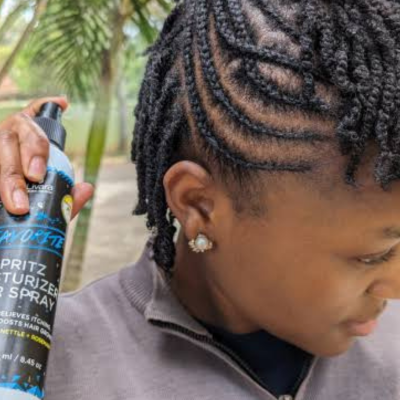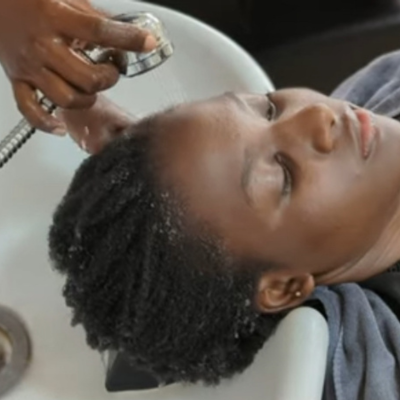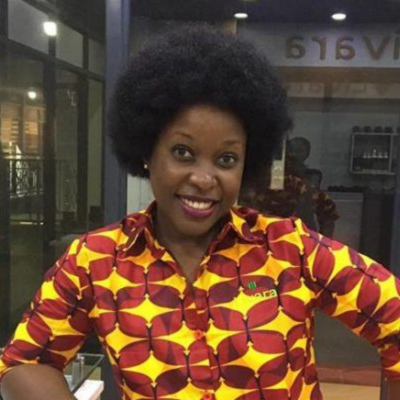- Support 24/7
- +1 (480) 468-4543
- livara@mylivara.com
Moisturizing: A Key Component of a Healthy Natural Hair Care Routine
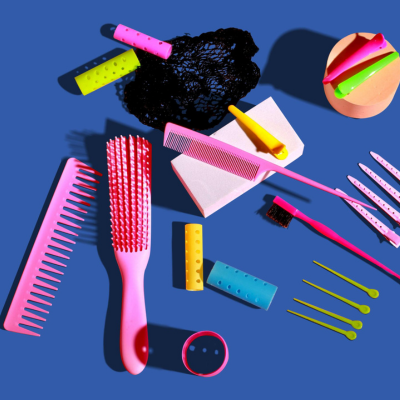
Mastering the Art of Detangling: Preventing Breakage
September 12, 2024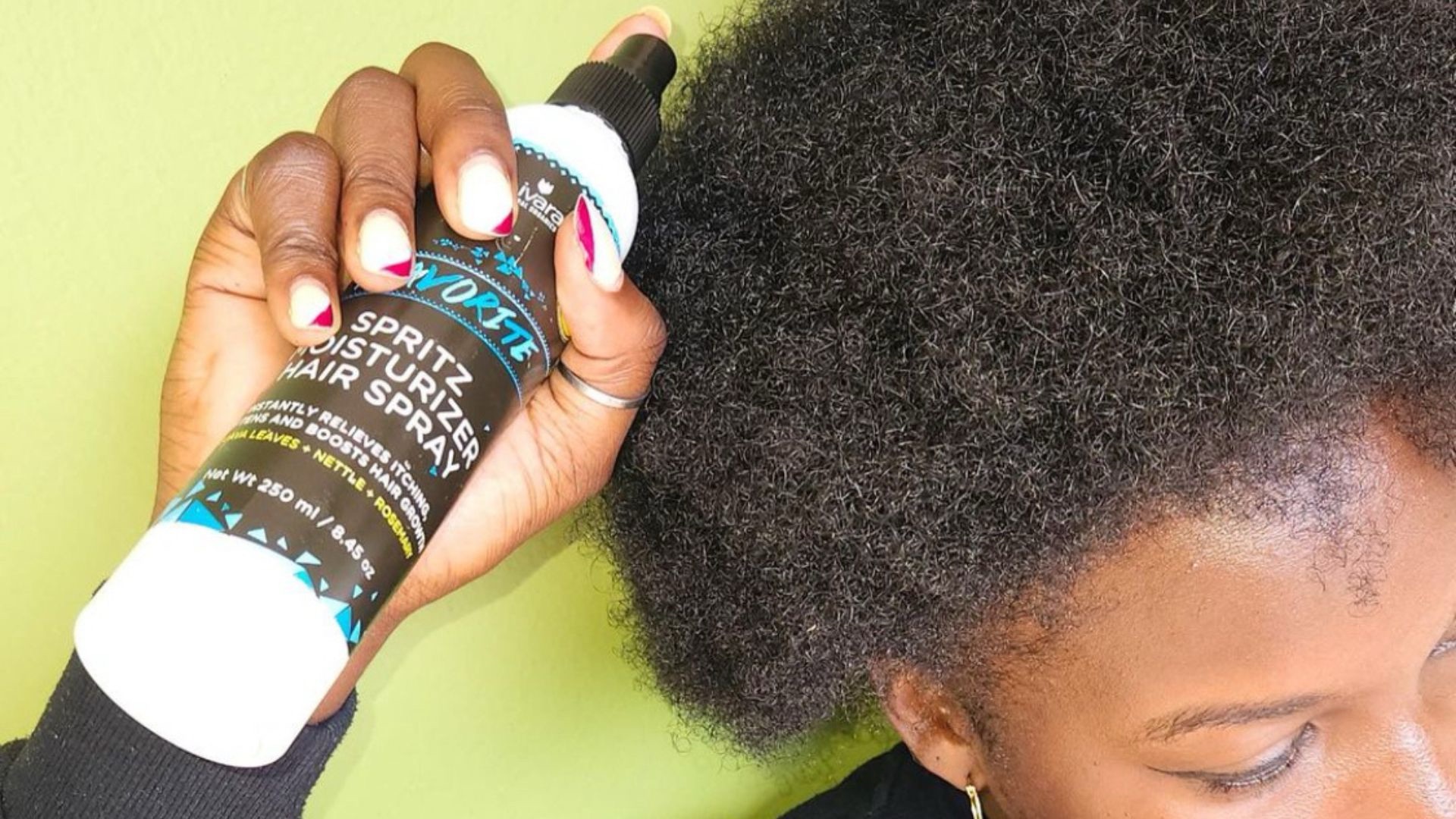
When it comes to caring for natural hair, moisturizing is not just an option; it’s a necessity. Just like our skin, our hair needs hydration to stay healthy, vibrant, and resilient. In this article, we’ll explore why moisturizing is crucial for your hair, how to effectively incorporate it into your routine, and the best products to use for optimal results.
Why Moisturizing is Essential
Natural hair, especially curly and coily textures like type 3 and 4 hair, tends to be more prone to dryness. This is largely due to the hair’s structure, which makes it difficult for natural oils from the scalp to travel down the hair shaft. Here are some reasons why keeping your hair moisturized is vital:
- Prevents Breakage: Dry hair is more susceptible to breakage and split ends. Regular moisturizing helps maintain the hair’s elasticity, making it less likely to snap or become damaged.
- Enhances Manageability: Well-moisturized hair is easier to style and manage. It reduces frizz and makes detangling a breeze, allowing you to achieve your desired look with much less effort.
- Promotes Healthy Growth: A hydrated scalp is essential for healthy hair growth. Moisturizing your hair and scalp creates a nourishing environment for hair follicles, encouraging growth and strength.
- Improves Shine and Texture: Moisturized hair looks shinier and feels softer. It helps smooth the cuticle, allowing light to reflect off the hair shaft, resulting in a healthier appearance.
What are the Signs That My Hair Needs Moisture?
Recognizing when your hair needs moisture is crucial for maintaining its health. Here are some common signs that indicate your hair is lacking moisture:
- Dryness and Rough Texture: If your hair feels dry, brittle, or rough to the touch, it’s a clear sign that it needs moisture. Healthy hair should feel soft and smooth.
- Frizz and Flyaways: Excessive frizz and flyaways are often signs of dry hair. When hair lacks moisture, it tends to become frizzy and unmanageable.
- Breakage and Split Ends: If you notice more breakage or split ends than usual, your hair may be crying out for hydration. Moisture helps maintain the integrity of the hair shaft.
- Lack of Elasticity: Healthy hair should stretch without breaking. If your hair feels stiff and lacks elasticity, it’s a sign that it needs moisture.
- Dull Appearance: If your hair looks lackluster and doesn’t shine, it may be time to boost its moisture levels. Hydrated hair reflects light better, giving it a vibrant appearance.
How to Effectively Moisturize Natural Hair
Incorporating moisture into your hair care routine doesn’t have to be complicated. Here’s a simple step-by-step guide to help you get started:
- Cleanse Your Hair: Begin with a gentle shampoo or co-wash to remove any buildup. Look for products that hydrate while cleansing, such as those containing natural oils or aloe vera.
- Apply a Moisturizing Conditioner: After cleansing, use a moisturizing conditioner to replenish lost moisture. Leave it on for a few minutes to allow your hair to absorb the nutrients.
- Use a Leave-In Conditioner: After rinsing out your conditioner, apply a leave-in conditioner to damp hair. This adds an extra layer of moisture and helps with detangling.
- Seal in Moisture: To lock in the moisture, apply a natural oil to your scalp and hair. Oils like argan, shea butter, or jojoba are excellent choices for sealing in moisture and adding shine.
- Moisturize Regularly: Make it a habit to moisturize your hair several times a week. You can use a spray bottle filled with water or a light moisturizer to refresh your hair daily.
Recommended Products for Moisturizing Natural Hair
Choosing the right products can make a significant difference in your moisturizing routine. Here are some top picks:
- Leave-In Conditioners: Look for leave-in conditioners that contain hydrating ingredients like glycerin, aloe vera, or shea butter, like the 2in1 Sapphire Deep Conditioner and Leave-In Treatment. These ingredients help draw moisture into the hair and keep it hydrated throughout the day.
- Deep Conditioning Masks: Incorporate a deep conditioning treatment into your routine once a week. Products infused with proteins, vitamins, and natural oils can provide intense hydration and repair damage.
- Moisturizing Sprays: Water-based moisturizers designed for natural hair often contain rich, moisturizing ingredients that help boost curls while keeping them hydrated.
- Natural Oils: Oils can be a great way to seal in moisture. Consider using light oils like argan or jojoba for daily use, and heavier oils like castor oil for deep treatments.
Bottomline
Moisturizing is an important aspect of a healthy natural hair care routine. By making moisture a priority, you can prevent breakage, enhance manageability, and promote healthy growth. Remember to choose the right products, establish a consistent moisturizing routine, and listen to your hair’s needs. With the right care, your natural hair can thrive, looking and feeling its best every day! Remember, you are a GEM.
Sources
- “How to Tell if Your Hair is Lacking Protein or Moisture”
Davines. (n.d.). Retrieved from Davines - “How to Moisturize Natural Hair Daily: A Step-By-Step Routine”
Gisou. (n.d.). Retrieved from Gisou - “Why It’s Important To Moisturize Your Hair Often”
TCB Naturals. (n.d.). Retrieved from TCB Naturals - “Know the Importance of Keeping Your Hair Hydrated”
Inoar. (2021). Retrieved from Inoar - “The Ultimate Guide to Moisturizing Natural Hair” (YouTube Video)
Curl House. (2021). Retrieved from YouTube - “Signs Your Hair Needs Moisture”
Simply Organic Beauty. (n.d.). Retrieved from Simply Organic Beauty
